

Tao Te Ching
Search Sages
Enter all or part of an sage's name or biography in the fields below, then press tab or enter to filter the list of Authors. Click the headings Name or Biography to sort by that column. Diacritics are ignored when searching.
Click on the author's name to go to their page.
| Author Name | Biography |
|---|---|
| Gia-Fu Feng | 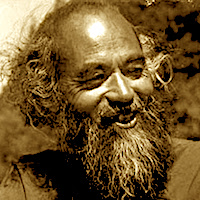 Gia-Fu Feng Gia-Fu FengCounterculture Patriarch, translator, teacher and Taoist rogue The son of a wealthy Shanghai banker, a founder of the Bank of China, Gia-Fu became a millionaire three times in his life and each time gave most of his money away. During the Japanese invasion of China he moved to Kunming and after the war to the USA to study international finance at the Wharton School. Because of the Korean war, he could not return to China and instead wandered around America in an old car. On the West Coast he encountered the Beat Generation and became friends with Alan Watts, Jack Kerouac, Abraham Maslow, Fritz Perls, and his student Michael Murphy, the main founder of Esalen Institut |
| Gilbert Seldes | 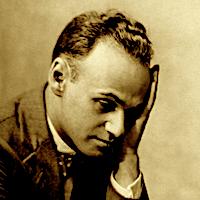 Gilbert Seldes Gilbert SeldesMaker of the first full-length documentary film Producer, author, critic, director, editor, and educator; Seldes created an immeasurable impact on Western Civilization with his insightful critiques and comments on popular American culture, cultural democracy, and popular history. The first CBS News television director, he pioneered innovative approaches to media and entertainment, hosted popular TV shows, created the the first full-length documentary film; wrote, directed and produced many educational programs. He praised Ernest Hemingway but only earned his disdain; strongly criticized F. Scott Fitzgerald's work but remained close friends. He helped legitimize popular entertainment but called soap operas 'corrupting influences’. An influential advocate for fairness and balance in reporting, his efforts delayed but unfortunately could not prevent the rise of propaganda-TV like Fox News. |
| Giordano Bruno | 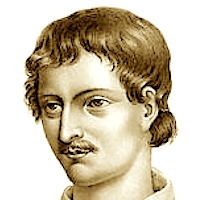 Giordano Bruno Giordano BrunoGiordano Bruno (1548 – 1600) |
| Giorgio Vasari | 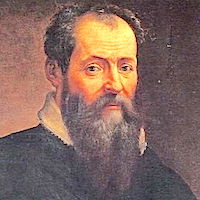 Giorgio Vasari Giorgio Vasari The first art historian, friend and student of Michelangelo, first to use in print the term "Renaissance,” architect, politician and painter; Vasari praised competition and was one of the first writers to use this term related to economics. The first to write a series of biographies about famous artists and describe the continuity of art, his dedication to artists and their art was so great that he once ran into the peril of a rioting crowd to rescue the pieces from an arm of Michelangelo’s statue “David” they had broken with a bench. Unlike many artists unrecognized until after their death, he was famous during his lifetime, became very wealthy, and even a powerful politician. |
| Giovanni Boccaccio | 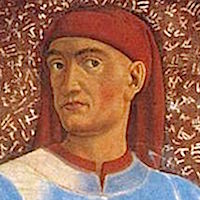 Giovanni Boccaccio Giovanni BoccaccioClose student, friend and collaborator with the “Father of the Renaissance,” Petrarch; Boccaccio became a popular poet/writer, “the first Greek humanist in Western Europe,” and promoted the ancient literature, philosophy, and history which set the stage for the Renaissance. His book on classical mythology became a key reference for 400+ years and challenged Christian belief that only the Bible was relevant, that there was only harm in “pagan” writings. In an early nod to feminist proposition, he wrote the first collection devoted to the biographies of famous women. Living through a tumultuous time of political intrigue, the executions of his friends, bitter poverty and bad health; he resisted many of the era’s superstitious and setting-sun forces; translated works by Homer, Euripides, and Aristotle; and helped launch one of history’s most influential shifts, the Renaissance. |
| Godhuripa | 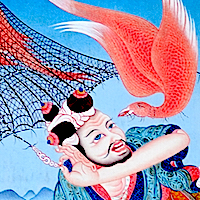 Godhuripa GodhuripaMahasiddha #55 Godhuripa’s livelihood was based on killing birds. He knew this was not good and created bad karma for himself; but, he didn’t think he had a choice because this was all he knew how to do. A teacher challenged this opinion pointing out that selling his soul for material gain only made things worse in the long run. He gave Godhuripa a spiritual practice of listening to the birdsong not to find and kill the birds but to discover “the sound of silence,” the one taste and unity of sound and emptiness. He let all the birds go, gained direct perception of sound, and became a teacher with hundreds of students. Mahasiddha #55 |
| Goenka | 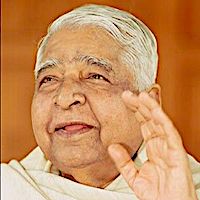 Goenka Goenka"The Man who Taught the World to Meditate" An Indian businessman who by chance met a spiritual teacher and set out on a spiritual path, Goenka taught meditation techniques previously reserved for monasteries to average people. He established centers all over the world and trained an estimated 1300 teachers. His courses emphasized a scientific, experiential, non-sectarian approach to meditation and over 120,000 people each year attended. Western students who set off on their own and became influential in the West include Jack Kornfield, Ram Dass, Jon Kabat-Zinn, Joseph Goldstein, and Sharon Salzberg. |
| Goethe, Johann Wolfgang von | 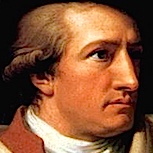 Goethe, Johann Wolfgang von Goethe, Johann Wolfgang von Though a literary celebrity at 25 and most well known for his novels and poems, Goethe was also a natural philosopher, diplomat, civil servant, geologist, and scientist who developed a theory of color, inspired Tesla’s discovery of alternating current and whose early work on evolution influenced Charles Darwin. A freethinker who blended Christianity with pantheism, humanism, and other esoteric traditions, he became a major influence on Hegel, Schopenhauer, Kierkegaard, Nietzsche, Hesse and Jung. He authored some of the greatest novels ever written and his poems were set to music by Mozart, Beethoven, Schubert, Brahms, Liszt and many others. Continuously creating for 82 years, his wisdom deepened and merged into a culture we take for granted today. |
| Goraksa | 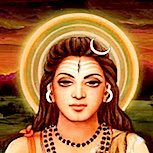 Goraksa GoraksaFirst haha yoga teacher, founder of India’s largest yoga sect, and non-sectarian Tantric leader; Goraksa assimilated Buddhist insight and understanding into a Hindu context free of duality and integrated tantric practices into Buddhist philosophy. His life symbolizes and his teachings reinforce that every condition and situation people find themselves in has equal potential for realizing the highest awareness. He emphasized the potential in even the most negative circumstances and taught to appreciate everything rather than fighting against our experience and trying to attain a fantasy of what we might think is better. |
| Grace Hopper | 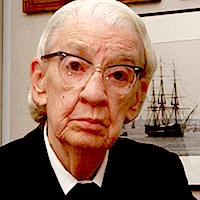 Grace Hopper Grace HopperComputer programming pioneer "Grandma COBOL,” US Navy admiral nicknamed "Amazing Grace,” IT goodwill ambassador, and recipient of 40 honorary university degrees; Hopper balanced a disciplined and conventional external with a fiercely independent, irreverent, and creative inner force. Her work and belief that computer code could be written in English led to the development of the early programming language, COBOL that’s still in use today. One of the oldest active duty officers in the US Navy’s history, she served for over 42 years and received the National Medal of Technology, the Presidential Medal of Freedom, and numerous awards and honors. While her team was working on an early computer in 1947, they discovered a problem caused by a moth in a relay. This was the physical source of the symbolic term, "debugging." |
| Gregory Bateson | 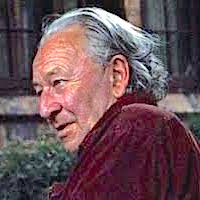 Gregory Bateson Gregory BatesonPoet-philosopher, deep thinker, anthropologist, and developer of a "meta-science;” Bateson established double-bind theory, helped apply systems theory to the social science, and was part of the core group that developed cybernetics. While married to Margaret Mead, he worked in South Pacific islands on anthropology and during World War II on black propaganda which led to a marriage-fatal disagreement with his wife on the use of science and technology in social planning. Describing 20th century history as a malfunctioning relationship based on betrayal and hate, he posed the development of cybernetics as a direction toward the creation of healthy relationships through the healing of paradox and the non-dual combination of thought and emotion. |
| Guan Yu | 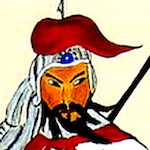 Guan Yu Guan YuConsidered a Bodhisattva and protector of Dharma in the Chinese Buddhist tradition, the ”Saintly Emperor Guan" and “subduer of demons” in Taoism, Guan Yu is also revered today by families, businesses, Chinese secret societies and Triads, by the criminal underworld as well as policemen. One of the best known Chinese historical figures throughout East Asia, he represents the epitome of loyalty and righteousness. Revered for his bravery and virtue, he has also become a popular figure in historical fiction, Chinese opera, movies, manga and even video games. |
| Guangchengzi |  Guangchengzi GuangchengziAvatar of the Tao According to Zhuangzi, Guangchengzi was a teacher of the Yellow Emperor and in some Taoist traditions, considered an avatar of the Tao emanating 3 times: first as Guangchengzi, second as Lao Tzu and the third time as Zhang Daoling (34-156 CE). A master of sword culture and an early incarnation of Lao Tzu, he’s considered an important part of founding Chinese civilization. |
| Guo Shoujing | 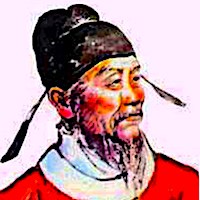 Guo Shoujing Guo Shoujing One of the history's most influential scientists Most highly regarded Chinese engineer, astronomer, mathematician of all time; a child prodigy and Kublai Khan’s chief science advisor, Guo Shoujing developed a calendar used for 363 years, the longest use of one calendar in all of Chinese history and the foundation for the Gregorian calendar that is still the world’s most used calendar. Spreading an approach called "evidential learning,” he became the leading influence on the development of Chinese science. He invented astronomy tools that calculate the accurate length of a year, an astrological compass using the stars instead of magnets, perfected watches and clocks that greatly increased accuracy, and perfected irrigation and reservoir techniques that increased harvests for hundreds of years. |
| Guru Amar Das | 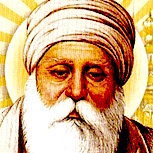 Guru Amar Das Guru Amar DasBorn into a farming family and a shopkeeper by trade, Amar Das didn’t become the Sikh guru until he was 73 years old but still had a profound influence. He convinced the Muslim emperor Akbar to decrease the persecution of Sikhs and Hindus and to decrease taxes. Against guru wealth and luxury, strongly against the caste system and corruption of all kinds, he spoke against the practices of sati and purdah, wouldn’t let recluses and ascetics become Sikh or Sikhs visit Muslim holy places, and required that anyone who wanted to see him must first eat from the common kitchen. |
| Guru Angad | 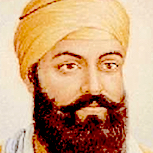 Guru Angad Guru Angad The son of a merchant, refugee from Babar’s invasion, and chosen as successor by Guru Nanak over his own sons; Angad developed Gurmukhi script, the main way of writing the Punjabi language. This helped give Sikhs a strong identity and ability to study ancient wisdom in their own language without need of translation and separate from the Sanskrit religious traditions and solidify Sikhism as a separate religion. He was also a strong influence in undermining the caste system and furthering the Sikh vision of equality. |
| Guru Arjan | 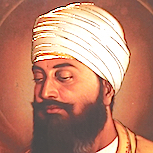 Guru Arjan Guru ArjanGreat musician and singer, youngest son of Guru Ram Das; Guru Arjan laid the foundation for the famous Golden Temple but instead of going along with the prevalent view that it should be the highest building in the area, emphasized humility and built it on the lowest elevation possible. And to counter the Muslim tradition of the entrance on the west and the Hindu version of it being in the east, he made entrances on all four side. Compiling the first edition of the Sikh “Bible,” Holy Guru Granth Sahib and avoiding sectarianism he included teachings of Hindu and Muslim saints. Jailed and tortured by a corrupt Muslim emperor, Arjan refused to convert or change his teachings and died changing the direction of Sikhism. |
| Guru Gobind Singh | 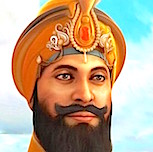 Guru Gobind Singh Guru Gobind SinghPhilosopher, poet, spiritual master, warrior, and last living Sikh Guru; his father was beheaded for refusing conversion to Islam and Guru Gobind Singh became Sikh leader when 9 years old. He introduced the Five Ks – the articles of faith that Sikhs always wear, founded the Khalasa warrior community, wrote important texts, and inspired his tradition to always stand up to tyranny and injustice. A great warrior who warned against aggression justifying it only as a last resort, he was betrayed by attacking Hindus but helped by loyal Muslims. Escaping this and other traps, he helped a new prince become emperor giving the Sikhs political support and transferred the succession on to a Holy Book instead of a personal guru. |
| Guru Har Krishan | 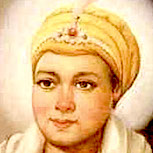 Guru Har Krishan Guru Har KrishanEighth and at 5 years old, youngest to become one of the 10 Sikh Gurus, Guru Har Krishan died when only eight years old. Chosen by his father because his older brother was in collusion with the Moghal Empire and because he had a soft heart, his youth didn’t seem to diminish his understanding, wisdom, or compassion. It was said about him, “The early morning sun looks small in size, but its light is everywhere.” During a smallpox epidemic, he helped take care of patients from different communities, religions, and castes; caught smallpox himself and died less than 2.5 years after securing his place in Sikh history. |
| Guru Har Rai Ji | 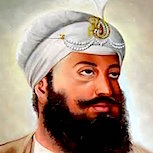 Guru Har Rai Ji Guru Har Rai JiA sensitive child disturbed when his robe accidentally hurt plants when he walked by, this seventh of the Sikh Ten Gurus remained a man of peace but continued the military tradition of his predecessor and kept over 2000 mounted soldiers at all times. He followed in the Sun Tzu tradition and won battles with strategy rather than aggression and violence. He stopped and prevented corruption, set up a medical research center, and established an Ayurvedic hospital. Herbs from these centers cured a serious and what was thought an incurable medical condition of the Mughal emperor’s son. |